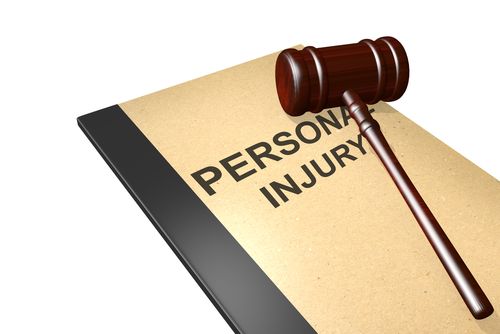
A dog bite is legally a personal injury, and, as with all New York personal injuries, the statute of limitations is three years from the date the bite occurred, with possible exceptions. Contact dog bite lawyer near you.
For a free legal consultation, call 516-451-7900
Statute of Limitations
New York provides a three-year statute of limitations for a personal injury lawsuit. Because the state does not have a dog bite statute per se, CPLR 214 governs the time period.
Mandatory Reporting
The City of New York requires that owners or other individuals report all dog bites within 24 hours of the bite. The report requires information on the animal, its owner, the person bitten, and the person making the report. You can find a form for reporting online at Report an Animal Bite – NYC Health. On Long Island, you also have a duty to report.
Click to contact our personal injury lawyers today
Civil Penalties
Under New York law, an owner who negligently allows their dog to bite someone is subject to a civil penalty of up to $400; after a severe injury, the penalty increases to $1,500.
Complete a Free Case Evaluation form now
Can You File Criminal Charges
Under limited circumstances, you can file criminal charges in addition to any civil lawsuit you file. New York courts have generally ruled that dogs can be a dangerous weapon under New York law.
If the dog has a history of being a dangerous dog and the bite causes death, a high risk of death, or leads to disfigurement or impaired function. If an owner knows that a dog is aggressive and doesn’t reasonably warn others, the owner will be guilty of a misdemeanor if the dog kills or seriously injures someone physically.
Common-Law Liability
If the dog owner knew or should have known of the dog’s vicious tendencies, the owner will be subject to strict liability for the injuries inflicted by the dog.
To win the common law strict liability claim, you must prove that:
- The dog had vicious propensities
- The owner knew or should have known of such propensities
- The dog injured you, and
- You experienced losses as a result of such injuries.
Victims can also seek damages under common law negligence claims. It usually won’t be permitted against the dog’s owner because of the strict liability standards. However, if someone other than the dog’s owner was a factor in the injury by acting carelessly, the victim should bring a case against that person. The victim must prove duty, breach, causation, and damages to win that case. Knowledge of prior vicious propensity is also required.
To do so, the victim must :
- Show that the defendant had a duty to act with reasonable care under the circumstances to prevent injuries to others.
- Prove that the defendant failed to take reasonable care in the circumstances
- Prove that, without the defendant’s failure to act carefully, the victim would not have suffered an injury
- Proof of the victim’s losses, including economic (medical bills, lost wages) and non-economic (pain and suffering, disfigurement, and scarring) damages. If the defendant’s conduct was especially reckless or heinous, the victim can claim punitive damages. Note that New York does not cap any of these damages.
Dangerous Dog Statute
New York doesn’t have a specific dog bite law, but it does have a dangerous dog law. Under this statute, dog owners are strictly liable for medical costs if their dog bites or injures someone. This rule applies even if the dog has never bitten anyone before and the owner took precautions to prevent injury.
To win damages in a dangerous dog case, you have to prove that:
- The dog was previously declared a “dangerous dog,”
- The defendant was the owner of the dog that injured you
- The dog bit or otherwise injured you, and
- The sum of your medical costs.
Under the dangerous dog statute, you can only recover medical costs. To recover anything else, you must proceed with a civil lawsuit against the owner or other responsible party (such as a negligent landlord).
Some Important Definitions
Under New York law, a dog is dangerous when, without justification, it attacks a person, a companion animal, farm animal, or domestic animal and causes physical injury or death. The dog is also dangerous if it behaves in a manner that a reasonable person will believe poses a serious and unjustified imminent threat of severe physical injury or death to a person, or a companion, farm, or domestic animal, or without justification attacks a service dog, guide dog, or hearing dog and causes injury or death.
For these purposes, a reasonable person is an ordinary person using average care, skill, and judgment.
A severe physical injury is an injury that creates a substantial risk of death or causes death or severe or prolonged disfigurement, impairment of health, or the prolonged loss or impairment of the function of any bodily organ.
A companion animal or pet is any dog or cat and any other domesticated animal that normally lives in or near the house with the owner.
A farm animal includes poultry, cows, sheep, cattle, swine (pigs), goats, llamas, horses, or any other fur-bearing animal raised for commercial or food purposes.
A domestic animal is any domesticated sheep, horses, cattle, deer, llamas, goats, swine, fowl, duck, goose, swan, turkey, rabbit, pheasant, or other bird which someone raised in confinement under license from the state
A physical injury is physical harm/injury or substantial pain.
Vicious propensities include any tendency to do any act that might endanger others or their property.
Evidence of such tendencies may include:
- Previous attacks
- Previous aggressive behavior, like lunging, snarling, growling, and snapping
- Prior attempts at biting, even if no bite ever occurred
- Training as an attack dog
- Statements by the dog owner that the dog is an attack dog or a biter
- Statements from neighbors, vets, dog trainers, and others who may know about the dog’s behavioral history and the owner
Evidence that the dog barked a lot or that its owners kept it chained will not prove that a dog is vicious. Further, a “Beware of the Dog” sign is not proof that an owner knows the dog has vicious tendencies.
How to Complain About a Dog Bite
The dog control officer will explain your right to commence a proceeding. If you want to complain about a dog, you should contact your local dog control officer or police officer.
After you make a complaint, either you or the Dog Control officer will go before a judge. The judge will decide whether there is probable cause to decide that the dog is dangerous at that hearing. If so, the judge will issue an order requiring that officials take the dog away immediately. Even if the judge does not order the removal of your dog, they must hold a hearing on the complaint within five days. The dog owner is entitled to at least two days of advance notice of the hearing.
At the hearing, the person who filed the complaint must prove the dog is dangerous by clear and convincing evidence. Clear and convincing is a higher standard of proof than in most civil cases but lower than the beyond-a-reasonable-doubt standard. The complaining party will present evidence and testimony, such as statements from those who saw the attack.
There are defenses that the dog owner can make to prevent the dog from being declared dangerous.
The owner may argue that:
- The attack occurred while someone was committing a crime against the dog’s owner or on the property.
- Someone tormented, abused, assaulted, or physically threatened the dog or its offspring or had done so in the past.
- The dog was responding to its pain or injury.
- The dog was protecting itself, its owner, custodian, or a member of its household.
What Happens if a Court Finds a Dog Dangerous
If the judge does find a dog dangerous, they must order
- Neutering or spaying of the dog and
- Microchipping of the dog
The judge may also order:
- Evaluation of the dog by a certified behavioral expert, paid for by the dog owner.
- Secure, humane confinement for an appropriate period and in an appropriate manner
- Restraint of the dog on a leash by an adult whenever the dog is in public
- Muzzling the dog whenever it is on public premises
- That the owner maintains a liability insurance policy in an amount determined by the court, up to $100,000 for personal injury or death resulting from an attack by the dog.
In aggravating circumstances, the court may order humane euthanasia or permanent confinement of the dog.
Aggravating circumstances include a finding that:
- The dog, without justification, attacked a person causing severe physical injury or death.
- The dog has a known vicious propensity evidenced by previous unjustified attacks on a person causing severe injury or death.
- The dog, without justification, caused severe physical injury or death to a companion animal, farm animal, or domestic animal and, in the past two years, caused similar unjustified attacks evidenced by a “dangerous dog” finding.
To reach the third aggravating circumstance, the court must find that the dog was previously found dangerous.
The dog owner has 30 days to appeal this decision. That 30 days must pass, or the owner must waive the 30 days before they release the dog for euthanization. If the owner appeals, the euthanasia will wait until the appeal concludes.
Owner Penalties for Dog Complaint
If the dog bites a person, service dog, guide dog, or hearing dog, the civil penalty cannot exceed $400. If the dog bites a person and causes a severe injury, the maximum penalty is $1,500. If the dog was already dangerous and caused a severe physical injury, the owner has committed a misdemeanor punishable by a fine of none more than $3,000 and up to 90 days in jail. The fines can decrease by any amount the dog owner has already paid to the injured party for medical and similar expenses.
When Is the Owner or Keeper Liable
The dog bite victim can seek compensation for the injuries under a few causes of action:
- Strict liability claim against the dog’s owner under the dangerous dog statute for medical or veterinary expenses only
- A common law strict liability claim against the dog owner for all types of damages
- A common law negligence standard against a landlord who knew or should have known about the dog for all damages
- A negligence claim against a party other than the owner for all types of damages if they had knowledge of prior vicious propensity.
The first thing to do is find your defendants. It’s usually the dog owner, but you may pursue a claim against another party, such as a kennel, vet, or a paid dog walker. An experienced dog bite attorney can be a big help with this part of your case.
Work With an Experienced Dog Bite Lawyer
As you’ve seen, New York’s dog-bite law-and lack of specific laws-make dog bites a very tricky area of law in New York. If a dog has severely injured you or a loved one, you don’t want to flounder around trying to figure out where you will get compensation.
Instead, contact a skilled and knowledgeable dog bite lawyer. They will give you a no-cost initial consultation and case evaluation. If you’re worried about affording a lawyer, remember that most personal injury and dog bite attorneys will take client cases on a contingency basis, so you don’t pay a fee unless they obtain a successful resolution. If you don’t win or settle successfully, you do not pay a fee. Let an experienced lawyer help take on your burden and get the compensation you deserve.








